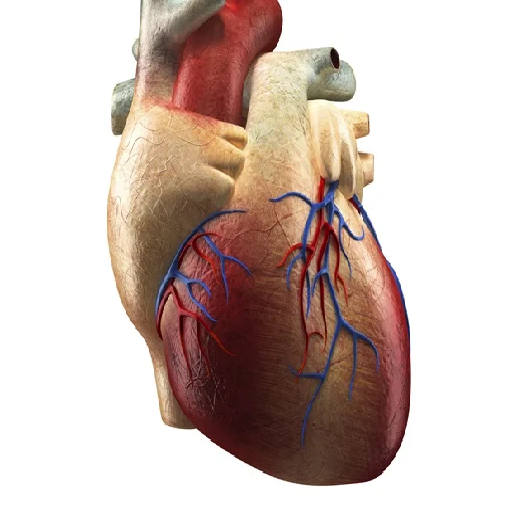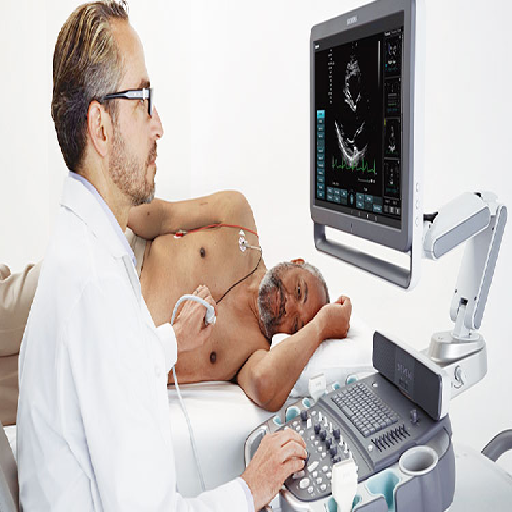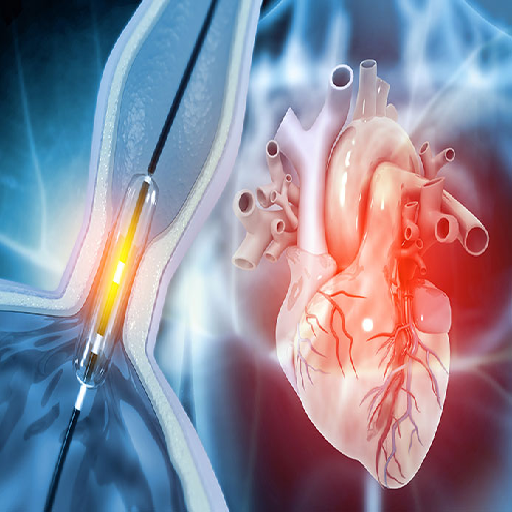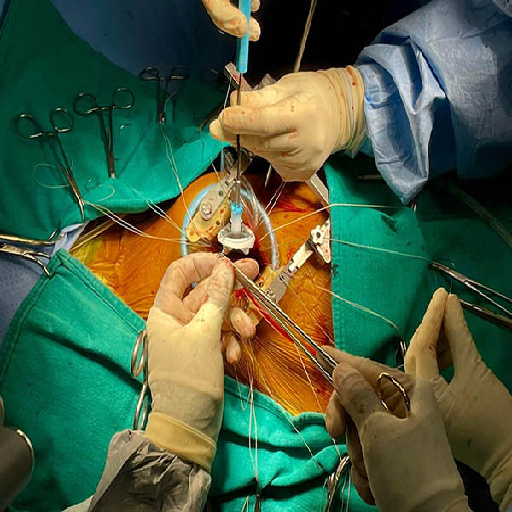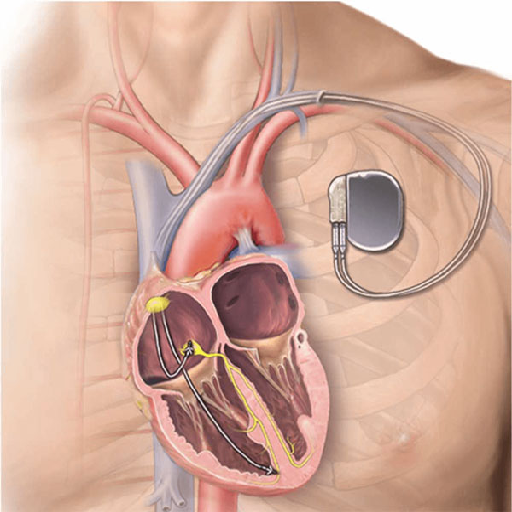Your heart is a vital organ, and prioritizing its health is essential for leading a fulfilling life. Cardiac
procedures encompass a wide range of medical interventions designed to diagnose, treat, and prevent
heart-related conditions. These procedures, from minimally invasive techniques to complex surgeries, play a
crucial role in managing cardiovascular health and ensuring better outcomes for patients. Whether you're
looking to understand how these procedures work or seeking options for a specific heart condition, this
guide offers a comprehensive overview to empower your heart health decisions.
Exploring cardiac procedures can often feel overwhelming, but gaining knowledge is the first step toward
confidence in your healthcare journey. On this page, you'll find information tailored to simplify complex
topics, making it easier to grasp the importance of different diagnostic and treatment approaches. From
preventive care to advanced surgical options, these insights aim to provide clarity and reassurance as you
navigate the path to better heart health.
What Are Cardiac Procedures?
Cardiac procedures are medical interventions designed to diagnose or treat heart and blood vessel conditions.
These procedures range from simple, non-invasive tests to advanced surgeries. They’re performed by skilled
cardiologists and cardiac surgeons who use cutting-edge techniques to ensure the best possible outcomes.
Purpose: Cardiac procedures are specialized medical interventions aimed at diagnosing or
treating conditions related to the heart and blood vessels. They address a variety of cardiovascular
issues, from blockages and irregular heartbeats to structural heart defects.
Types of Procedures: These procedures range from non-invasive tests like
electrocardiograms (ECGs) and echocardiograms to minimally invasive techniques such as angioplasty, and
open-heart surgeries like bypass surgery. Each procedure is tailored to the patient’s specific needs.
Expertise and Technology: Skilled cardiologists and cardiac surgeons perform these
procedures using state-of-the-art equipment and techniques. This ensures precision, safety, and improved
outcomes for patients.
Patient Empowerment: Understanding these procedures allows patients and their families
to make informed decisions, feel more in control, and better prepare for treatment. Open communication
with healthcare providers is key to a successful journey toward recovery.
Types of Cardiac Procedures
Diagnostic Procedures
Before treating a heart condition, it’s essential to understand it. Diagnostic procedures help
doctors get a clear picture of what’s happening inside your heart and blood vessels.
Electrocardiogram (ECG or EKG): A quick, painless test that measures the heart’s
electrical activity. It’s often the first step in diagnosing heart rhythm problems.
Stress Test: Monitors your heart’s performance under physical stress, helping identify
issues like blockages or irregular rhythms.
Echocardiography (Echo): An ultrasound of the heart that shows its structure and
function in real-time.
Coronary Angiography: A special X-ray test to see how blood flows through your coronary
arteries.
Minimally Invasive Procedures
Advancements in medical technology mean many cardiac conditions can now be treated with minimally
invasive methods, which often lead to quicker recoveries and fewer complications.
Angioplasty: A life-saving procedure to open blocked or narrowed arteries.
A tiny balloon is inflated inside the artery to restore blood flow.
Stenting: Often performed with angioplasty, stents are small tubes inserted
into arteries to keep them open and reduce the risk of future blockages.
Echocardiography (Echo): An ultrasound of the heart that shows its structure
and function in real-time.
Ablation Therapy: Used to treat abnormal heart rhythms by destroying the small
areas of heart tissue causing the irregularity.
Surgical Procedures
In some cases, surgery is the most effective way to treat heart conditions. These procedures
are performed by highly skilled cardiac surgeons and often involve advanced techniques to ensure
precision and safety.
Coronary Artery Bypass Grafting (CABG): Commonly known as bypass surgery, this
procedure reroutes blood flow around blocked arteries to improve blood supply to the heart.
Heart Valve Surgery: Repairs or replaces damaged heart valves to restore normal
blood flow.
Heart Transplant: A life-saving option for patients with end-stage heart failure
when other treatments are no longer effective.
Specialized Procedures
Some conditions require highly specialized treatments that combine expertise and technology.
Pacemaker Implantation: A small device placed under the skin to help regulate
abnormal heart rhythms.
TAVR (Transcatheter Aortic Valve Replacement): A minimally invasive alternative
to open-heart surgery for valve replacement.
Implantable Cardioverter Defibrillator (ICD): A device that monitors and
corrects dangerous heart rhythms.
When Should You Consider a Cardiac Procedure?
If you’re experiencing symptoms like chest pain, shortness of breath, dizziness, or irregular heartbeats, it
might be your body’s way of signaling a heart issue that needs attention. These symptoms could stem from a
range of conditions, from clogged arteries and heart rhythm problems to more complex structural issues. It’s
important to take them seriously and consult a doctor promptly.
In many cases, lifestyle changes like improving your diet, exercising regularly, and managing stress,
combined with prescribed medications, can help control heart-related conditions. However, if these measures
don’t alleviate your symptoms or if your condition is more severe, your doctor might suggest a cardiac
procedure as the next step. These procedures are designed to either diagnose the problem more precisely or
to treat it effectively, ensuring better long-term heart health.
It’s completely natural to feel nervous or uncertain when faced with the prospect of a cardiac procedure.
But remember, these interventions are often life-saving and can dramatically improve your quality of life.
The earlier a problem is identified and addressed, the better your chances of avoiding complications and
leading a healthier, more active life. Trusting in the expertise of your healthcare team and staying
informed about your options can help you feel more confident as you navigate this journey.
What to Expect During and After a Cardiac Procedure?
Undergoing a cardiac procedure can be an unfamiliar experience, but understanding what to expect can ease
your concerns and help you feel prepared. While every procedure is tailored to the patient’s specific needs,
the overall process usually follows a structured plan to ensure your safety and recovery.
Before the Procedure
Preparation begins with a thorough consultation with your cardiologist, where they will explain the purpose
of the procedure, potential benefits, and associated risks. This is a great opportunity to ask any questions
you might have, ensuring you feel informed and reassured. Depending on the procedure, your doctor may order
pre-procedure tests, such as blood work, an ECG, or imaging studies like an echocardiogram or CT scan, to
assess your overall health and ensure you’re ready for the intervention. You may also receive instructions
about fasting, medications to stop or continue, and other preparatory steps to follow the day before your
procedure.
During the Procedure
The procedure itself varies widely depending on whether it’s a non-invasive test, a minimally invasive
intervention, or a surgical operation. Non-invasive diagnostic tests, such as stress tests or
echocardiograms, are typically painless and conducted on an outpatient basis. You may only need to lie still
while the medical staff completes their evaluation.
After the Procedure
Your recovery will depend on the type of procedure performed. For outpatient diagnostic tests or minimally
invasive interventions, you might be able to go home the same day, often with simple instructions for rest
and care. For more intensive procedures, like surgeries, a stay in the hospital’s recovery unit or intensive
care unit (ICU) may be required for monitoring.
Emotional and Practical Considerations
It’s natural to have mixed emotions after a cardiac procedure. While you may feel relieved to have received
treatment, you might also feel anxious about your recovery or future health. Lean on your support
system—family, friends, and your healthcare team—to navigate these feelings. Staying proactive in your
recovery by following medical advice, attending follow-ups, and maintaining a healthy lifestyle can empower
you to take charge of your heart health and live a fuller life.
FAQs About Cardiac Procedures
Q: Are cardiac procedures safe?
A: Yes, most procedures have high success rates. Advances in technology and
techniques have made cardiac care safer than ever.
Q: Will I feel pain during the procedure?
A: Diagnostic tests and minimally invasive procedures are generally painless.
Surgeries are performed under anesthesia, ensuring you’re comfortable.
Q: How long will I need to recover?
A: Recovery times vary. Non-invasive tests may not require any downtime, while
surgeries might need a few weeks to a few months.
Your Heart Deserves the Best Care
At Best Cardiac Hospitals, our mission is to serve as your trusted partner in navigating the journey to
exceptional heart care. We understand that cardiac health is vital, and finding the right specialists and
facilities can make all the difference. That's why we are dedicated to connecting you with top-tier
hospitals and expert cardiologists who deliver world-class treatment. Whether you're researching your
options, preparing for a procedure, or seeking reliable information about heart health, our platform is
designed to empower you with the resources and guidance you need. Your well-being is our priority, and we’re
here to support you every step of the way.
ONLINE HASSLE FREE Appointment
BOOKING
Get an appointment with us and get the resolution
ASAP
